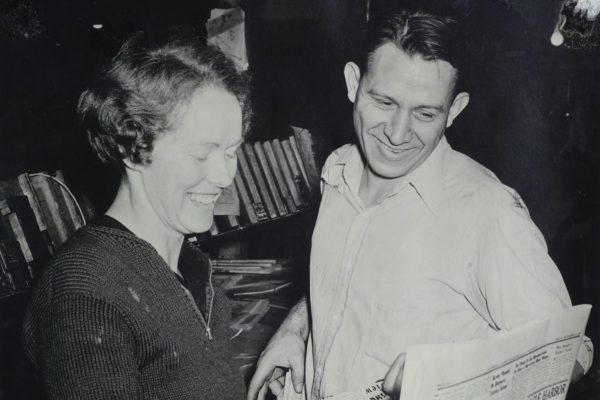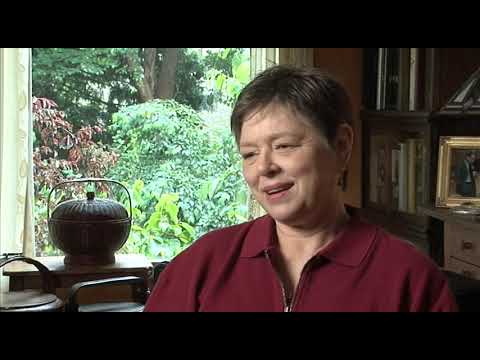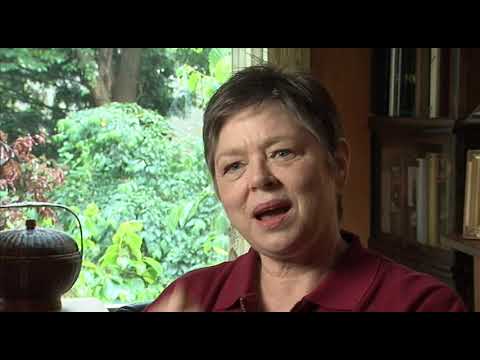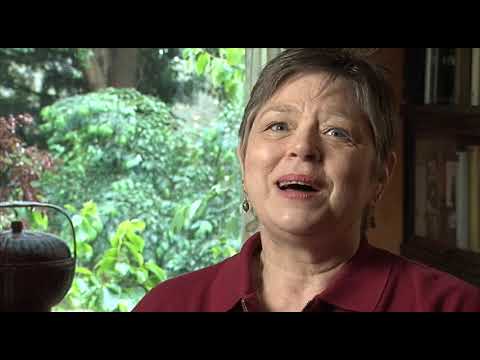Video Interview — August, 2007
Friends say goodbye – Mary Woodward (OH0088)
Transcript
My mother had a description of the goodbyes. The Army came to each home, the morning of the 30th of March, the day they were to leave the island. Picked up everybody and brought them to Taylor Ave. The high school allowed their students to leave; if you want to go say goodbye to your friends, you can. And mother talked about… she said it was very touching. It was like any group of teenagers saying goodbye. It didn’t matter what race they were. There were tears, it was very very wrenching to watch that. It was difficult to see the pain they were in, saying goodbye to their friends.
The younger grades, kids weren’t allowed to leave, but many did. They played hooky and came and said goodbye to their friends. The class that had just graduated had very, very close friendships and continue to meet, I think they still do, on a weekly basis. Those who are around here get together for coffee, like a little mini reunion every week. It’s wonderful to see those friendships. One who was forced to leave, Jerry Nakata, had a good friend who was working at the shipyard. He had asked if he could go, and the shipyard guy said no, so he couldn’t go. That was, that was hard. But there were kids, who… they couldn’t take the same ferry that the Japanese were on.
So they scurried and got another ferry into Seattle. Met their friends in Seattle, and actually chased behind the train, waving and crying. I mean Rich Barr talks about, “We were sobbing. These were our friends who were leaving.” It was so, what could we do? Well we could run along and wave, you know. So there were some just very poignant scenes of goodbyes. Some pictures of… this one picture in particular, a tall, she looks Scandinavian, and her two Japanese friends and they’re just.. their faces, they’re looking down, and obviously they were very close friends and they’re saying goodbye and they don’t know for how long, they don’t even know where their friends were going, and they don’t know how long, when they’ll ever see them again. It was very, very sad.
There were many adults who came, also, to say goodbye to their friends. Jerry Nakata, again tells a story of his brother’s grocery, that almost immediately after Pearl Harbor, these folks came in to pay their bill. He said, his brother would say, “Oh, no, that’s not necessary, you don’t have to….” “No, you need this.” They came purposely to help their friend, kinda make it… ease it a little bit.





